1. Spend Less Before Retirement
In the years approaching retirement, it is important to watch your spending very closely. It’s fair to say that reducing your spending now so that you can enjoy a longer retirement is really a case of delayed gratification. Do you really need the top of the range BMW? Is it necessary to have the full Sky TV package? Carry out a quarterly audit of your spending. This will help you control it.
2. Increase the amount you are Investing
If you want to retire early, you really need to “feel a little pain”. Saving and investing as much as possible will be necessary. It is crucial to “automate” your savings. This will ensure that it actually happens each month and is not left to chance. Automating savings really means setting up a standing order so the money is taken automatically from your account each month.
Maximise your pension contributions each month. Currently a forty year old can contribute 25% of earnings into a pension and claim tax relief at their marginal rate (subject to earnings cap of €115k).
Look at pension savings in a different way. Instead of saying “I will save €500 p.m. and then claim tax relief”, say to yourself “I will save €833 p.m. and claim tax relief of 40% bringing my net contribution down to €500”. In this case, you are getting the benefit of a contribution of €833 each month, however, it is only costing you €500 (after tax).
3. Earn More Income
This can be easier said than done. See if you can persuade your boss to give you a salary increase. Alternatively, try and persuade him to make an employer contribution into your pension. We call this free money. If you are lucky enough to own a “buy to let” property check that the rental income being received reflects the true market rent. You are entitled to increase same by up to 4% p.a. Don’t forget you are going to be retired for a long time so why not try and work slightly longer hours for your last few years, to help increase your income in retirement
4. Get a Better Investment Return on your Investments/Pensions
This is the one than can appeal most to some people. If you increase the risk on your portfolio by putting more of your funds into higher risk assets this could improve the overall investment performance. However, this strategy comes with a health warning. No one knows where the markets are going, so proceed with caution. You could easily lose money at a really bad time – just before retirement. Dialling up the risk a little bit is only a good idea for people that have a long investment horizon so if things go wrong they have plenty of time for their funds to recover.
5. Defer Your Early Retirement For a Year or Two
This can have a great impact on the numbers. It can have a two fold effect. In simple terms, you will have two more years of pension/investment contributions made (plus potential investment growth) and you will have two years less to fund for.
6. Pay Off Your Mortgage (and any other Short Term Debt)
Ideally it is better to retire after the mortgage is paid off. The last thing you want to be doing is making mortgage repayments out of a modest post retirement income. Knowing that the mortgage has not been cleared will act like a “handbrake” every time you are thinking about doing one of the activities on your bucket list.
If the mortgage is cleared you will also have the option of downsizing your house i.e. moving to a smaller house and living off the equity released.
7. Be Smart About Taxes
If you are saving make sure that they are tax efficient savings. Savings through pensions is more beneficial for you than saving through normal savings plans.
Make sure you are claiming all your reliefs from the taxman each year. This will give you additional income. Pay particular attention to the following reliefs:
-
- Medical Expenses
- Pension Relief
- Income Protection Relief
- College Fees
- Check that your tax credits are correct
8. Have a Purpose When You Retire
In our last newsletter, Les Knott talked about having a purpose in retirement. If you are planning to retire in a few years, spend a little time thinking about your purpose in life. It’s all very well being financial independent and having enough money but remember there are only so many cold beers you can drink and games of golf that you can play. Have a look at our last newsletter – hopefully it will have a few pointers.




